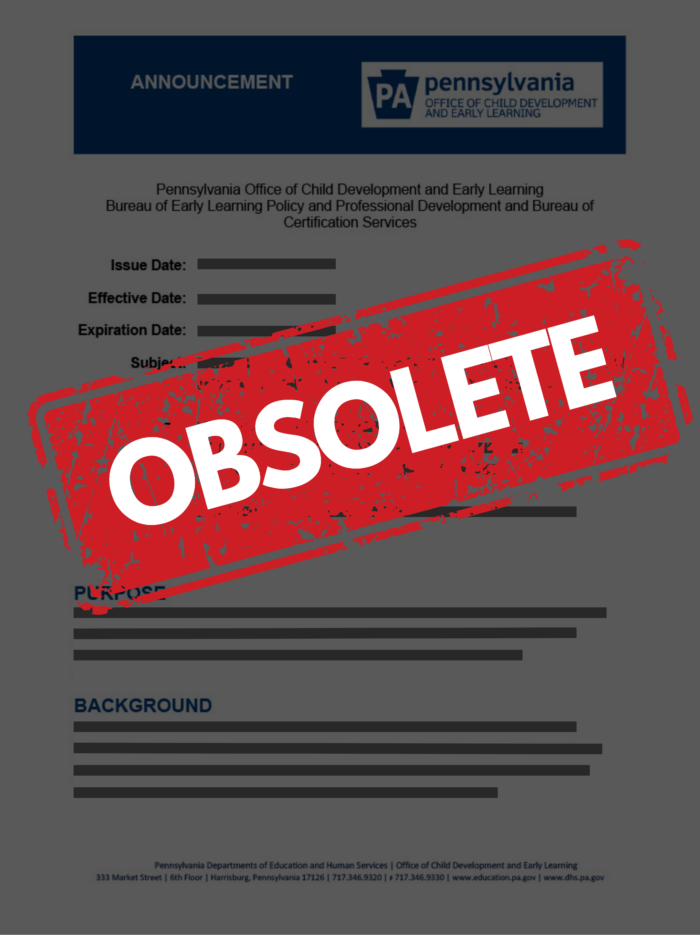 Created in 2007 by the Pennsylvania Office of Child Development and Early Learning (OCDEL), The Pennsylvania Key implements the work and supports the policies developed and managed by OCDEL. Learn More. >
Created in 2007 by the Pennsylvania Office of Child Development and Early Learning (OCDEL), The Pennsylvania Key implements the work and supports the policies developed and managed by OCDEL. Learn More. >To:
From:
Tracey Campanini,
Deputy Secretary, Office of Child Development & Early Learning
Issue Date: September 1, 2020
Effective Date: September 1, 2020
Sunset Date: September 30, 2021

To explain changes to the policy regarding parents/caretakers caring for their own children in a child care setting during the COVID-19 pandemic-related Proclamation of Disaster Emergency.
Current policy states that Parents/caretakers who are employed at a child care facility can be eligible for Child Care Works (CCW) funding for their children who are enrolled at the facility in which they work as long as the parent/caretaker is not caring for their children for any part of the day, including during breaks and naptime. The intent of the current policy is to ensure CCW funding is not used to pay for a parent/caretaker to care for their own child.
The Center for Disease Control and Prevention (CDC) recommends “If possible, child care classes should include the same group each day, and the same child care providers should remain with the same group each day,” therefore the Office of Child Development and Early Learning is revising this policy temporarily during the COVID-19 pandemic.
Please review the CDC’s Guidance for Child Care Programs that Remain Open.